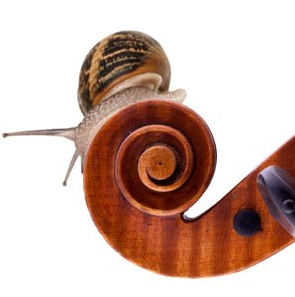This article was placed by a violin colleague, Brecklyn (www.pluckyviolinteacher.com). I think this issue is important to read, as well for teachers as for parents. So I copied it and put it on my website. Not to forget! The image I found on internet, it was not included in this article.
Heleen
HELP! MY SUZUKI TEACHER WON’T LET US GO TO THE NEXT PIECE!
February 17, 2016 by Brecklyn
WHEN YOU FEEL YOUR PROGRESS IS TOO SLOW…
How many times have you heard first variation of twinkle this week? I know. For some of you with beginning students, you’ve probably heard your child or the recording of “variation A” hundreds if not thousands of times. It’s enough to make you lose your mind.
t’s not just that though. It can be so frustrating when we see other students moving to new pieces while we are still playing the same piece for months. Your child may be getting bored. You may be getting bored.
You might feel like your Suzuki teacher is going too slow. Being too picky. I understand this feeling, and felt it many times when I was a student myself, but it is important to understand why your teacher is moving your child slowly through the repertoire.
There are a few possible reasons your teacher is moving slowly. Let’s assume that your child is playing the correct notes, rhythms, and bowings with decent intonation. (If this isn’t happening, then that’s probably why you’re not moving more quickly.)
Your teacher wants to prepare your child for the difficulties coming in the next pieces.
There is a big jump in complexity between some pieces, and almost no jump between others. For example, is Andantino harder than Allegretto? Not really. But Gossec Gavotte is 100 times harder than Happy Farmer. In my opinion, La Folia is basically a kick in the face after Bach Double. Your teacher may be waiting to start the next piece because the next piece has unique difficulties that they want to prepare you for.
Your teacher wants to focus on some technical issues.
Playing the violin, or any instrument, is a pretty complicated activity. The movements aren’t always natural and it requires a great deal of focus and attention. Tension can creep in and lead to very uncoordinated and awkward movements, which become deeply ingrained habits. It is important to address these technical issues quickly and thoroughly as they can inhibit future progress and even cause injury. Moving your child to more difficult repertoire without addressing serious tension issues can actually cause overuse injuries. Not good.
Your teacher wants your child to polish and perfect their pieces.
Playing music is more than just playing the right notes and rhythms (with the right bowings, of course.) What about dynamics and phrasing? Learning to play dynamics and phrasing is the beginning of developing your child’s unique musical expression. Teaching children to express themselves and communicate through music is one of the many lessons we want our children to learn in music lessons. They can only do this when they aren’t totally focused on playing the “right” notes, so those have to be learned first. Some of the polishing and perfecting happens when the piece is in “review” but you need to know how should be played before it can be relegated to the review portion of your practice.
Of course, these are just my thoughts on the subject. There may be other reasons to move slowly through the repertoire.
Believe me, your Suzuki teacher wants your child to progress and improve. We get sick of Martini Gavotte too! If you are concerned about a lack of forward movement, please, discuss it with your child’s teacher. They may have insight that you don’t. And, if you or your child are frustrated, we want (and need) to know! Maybe your teacher can provide a supplemental piece to keep things interesting while you polish the piece you’re stuck on. If you don’t communicate these issues, we may never know that there’s a problem.
Above all, be patient and don’t compare. Your child didn’t learn to speak in a week, or even in a matter of months. It took him years to learn all of his vocabulary, the rules of grammar, and he’s still perfecting them now. Try to adopt an attitude of excitement for every small step in this journey and show your child that it’s not just new songs that mark improvement. Better intonation, straighter bow, bigger tone, increased focus..treat all of these things as milestones on the way.
Of course, the main requirements for quick progress are pretty obvious. Take an inventory to make sure that you’re not missing one of these vital components.
Are you listening to the current (and coming) pieces a LOT? I’m talking every day for at least an hour.
Are you practicing consistently? Dr. Suzuki suggested practicing every day that you eat.
Are you practicing carefully? Haphazard practicing leads to messy playing, and little to no improvement.
Have you ever felt like your teacher was going too slow? If you are a teacher, when you put on the brakes what are your reasons?
